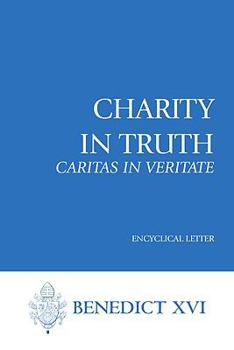Caritas in Veritate
(Part of the Encyclicals & Exhortations of Benedict XVI Series)
Select Format
Select Condition 
Book Overview
In Charity in Truth (Caritas in veritate), Pope Benedict XVI offers an ethical analysis of the global economic crisis and a moral framework on how to move forward as one human family. He challenges each of us to put charity and truth, justice and the common good at the heart of our economic choices and everyday lives.
Format:Paperback
Language:English
ISBN:1601370490
ISBN13:9781601370495
Release Date:July 2009
Publisher:U.S. Conference of Catholic Bishops
Length:100 Pages
Weight:0.37 lbs.
Dimensions:0.2" x 6.1" x 8.9"













